The views expressed in our content reflect individual perspectives and do not represent the authoritative views of the Baha'i Faith.
Men at all times and under all conditions stand in need of one to exhort them, guide them and to instruct and teach them. Therefore He hath sent forth His Messengers, His Prophets and chosen ones that they might acquaint the people with the divine purpose underlying the revelation of Books and the raising up of Messengers, and that everyone may become aware of the trust of God which is latent in the reality of every soul. – Baha’u’llah, Tablets of Baha’u’llah, p. 161.
In the Tablet to Amir Khan, which we discussed in the previous essay in this series, Abdu’l-Baha answers Amir Khan’s four questions:
1. How can one become more skillful in arts and crafts?
2. Did the ancestors of Native North Americans cross over the Bering Strait?
3. What is the fate of people who do not know of God’s latest Messenger?
4. Were Messengers of God sent to North America?
I asked Baha’i scholar Dr. Necati Alkan: “What is your independent understanding of Abdu’l-Baha’s answer to Amir Khan’s fourth question?” Here’s his fascinating answer:
Abdu’l-Baha says that the “Call of God” was raised in America in ancient times. The Persian construct, nidā-yi ilāhī (“Call of God”) uses two Arabic words (for “Call” and “God”). The Arabic word for “call” is al-nidā’.
As commonly used in the Baha’i Writings, the expression, the “Call of God” almost always means a Revelation by God through a Prophet/Messenger (which Baha’is refer to as a “Manifestation of God”).
In addition to this, the Qur’an says: “Every nation has its Messenger.” (Q. 10:47a, Arberry’s translation.) This verse continues with: “Then, when their Messenger comes, justly the issue is decided between them, and they are not wronged.” (Q. 10:47b, Arberry.) The very next refers to a future event: “They say, ‘When will this promise be, if you speak truly?” (10:48, Arberry.) This verse clearly indicates that Messengers of God will come after Muhammad.
In Baha’i interpretation, the Bab and Baha’u’llah appeared. So why should God not have sent a Prophet/Messenger also to the Native American/Native Canadian “nations” (peoples)?
Besides, according to Abdu’l-Baha, only 28 Prophets are mentioned in the Qur’an by name. There are Prophets that the Qur’an does not mention by name, such as Zoroaster. This being the case, we cannot exclude Prophets/Messengers sent to other “nations.”
Lastly, there is a statement by Baha’u’llah in his Commentary on the Sura of “The Sun.” (A “Sura” is a chapter of the Koran, which has 114 Suras.) Baha’u’llah states that every nation on earth has been enlightened by one of these “Suns,” i.e. Prophets of God.
Based on a combination of the above statements by Baha’u’llah, Abdu’l-Baha and the Qur’an, and since we also know that there were more than one “nation” (meaning a “people,” rather than a political state), the more likely interpretation is that Abdu’l-Baha refers to more than one Manifestation of God sent to North America.
Then I asked Dr. Alkan: “You know of my interpretation, which is that Abdu’l-Baha was telling Amir Khan that God sent Prophets and Messengers to the indigenous peoples of North America. Would you have arrived at the very same conclusion? In other words, do you read this text in much the same way?” He said:
Abdu’l-Baha’s statement in the Tablet to Amir Khan is unambiguous. Who else than Prophets or Messengers can raise the “Call of God?”
As the Qur’an (which, although not a Baha’i scripture, provides important background to Baha’i terminology), says: “O believers, respond to [the Call of] God and the Messenger when He calls you unto that which will give you life.” Here, the “Call of God” is spoken through the Messenger of God, who serves as God’s mouthpiece or interlocutor with humankind.
As I just explained above, we can interpret the “Call of God” raised in America as referring to at least one Messenger/Prophet of God in that region–and probably more, since there were a number of Native American and Native Canadian “nations.”
In a way, it’s quite revolutionary because we could add (unofficially) at least another Manifestation of God to the Ones that exist in the Baha’i Faith. We are seeing something quite dramatic unfolding before our very eyes.
I asked Dr. Alkan: Since Abdu’l-Baha does not identify any Native American Messenger of God by name, is there a way that you can apply for Baha’i criteria (or “proofs”) to the following passage by the “Peacemaker” (Deganawida, the Iroquois Prophet)? And does this sound like the “Call of God” to you, speaking personally, as a Baha’i?
Thereupon Tekanawita [Deganawida] stood up in the center of the gathering place, and then he said, “First I will answer what it means to say, ‘Now it is arriving, the Good Message.’ This indeed, is what it means: When it stops, the slaughter of your own people who live here on earth, then everywhere peace will come about, by day and also by night, and it will come about that as one travels around, everyone will be related. …
Secondly, I say, ‘Now it is arriving, the Power,’ and this means that the different nations, all the nations, will become just a single one, and the Great Law will come into being, so that now all will be related to each other, and there will come to be just a single family, and in the future, in days to come, this family will continue on.
Now in turn, the other, my third saying, ‘Now it is arriving, the Peace,’ this means that everyone will become related, men and also women, and also the young people and the children, and when all are relatives, every nation, then there will be peace as they roam about by day and also by night. … When they are functioning, the Good Message and also the Power and the Peace, moreover, these will be the principal things everybody will live by; these will be the great values among the people.” – Deganawida, Concerning the League, pp. 36–41.
Dr. Alkan answered “Yes. It sounds to me that the Peacemaker did raise the “Call of God” in “ancient times” (that is, in the “pre-contact” era before the Europeans came to America). “It rings true. It fits Abdu’l-Baha’s description in the Tablet to Amir Khan perfectly. There’s no question that Deganawida’s teachings are profound. They resonate powerfully with Baha’i teachings. They are in harmony. They echo each other.”
©2014 by Christopher Buck.


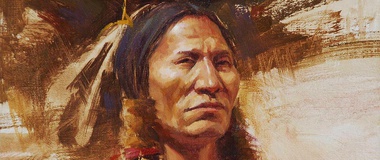

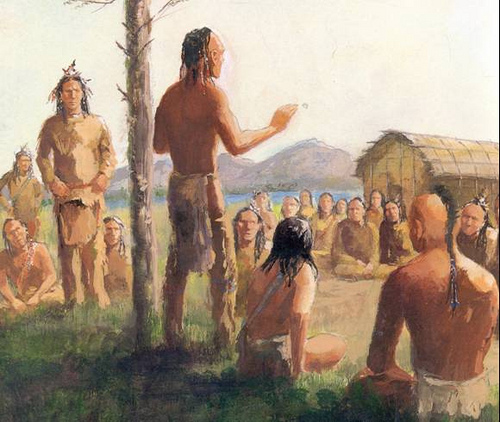

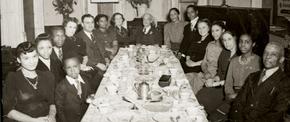

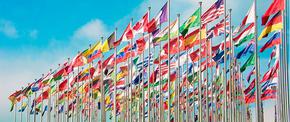





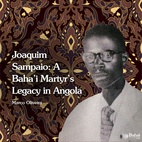
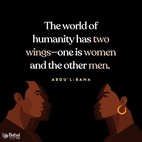
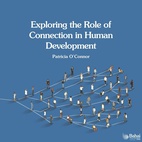


Comments
Sign in or create an account
Continue with Googleor